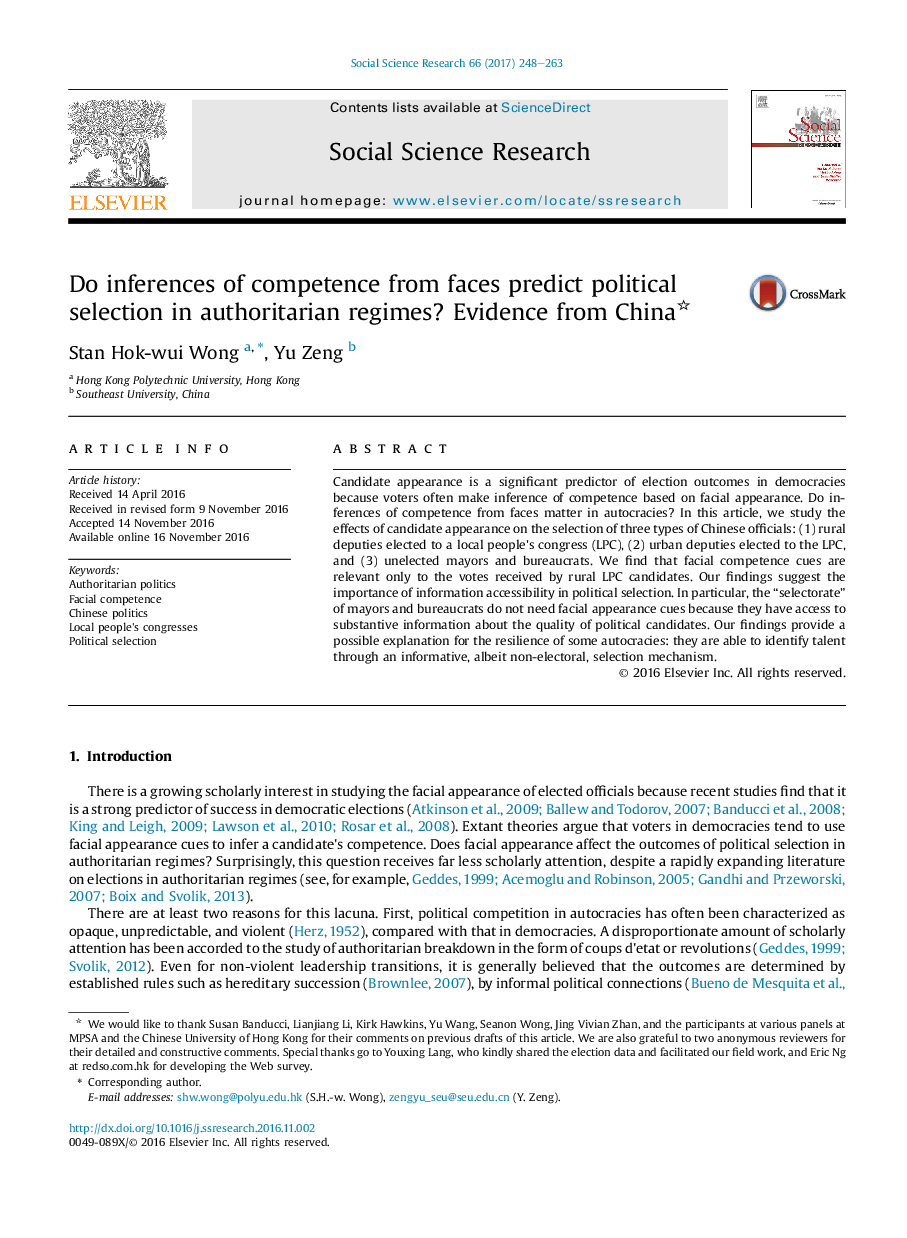| Article ID | Journal | Published Year | Pages | File Type |
|---|---|---|---|---|
| 5047025 | Social Science Research | 2017 | 16 Pages |
Candidate appearance is a significant predictor of election outcomes in democracies because voters often make inference of competence based on facial appearance. Do inferences of competence from faces matter in autocracies? In this article, we study the effects of candidate appearance on the selection of three types of Chinese officials: (1) rural deputies elected to a local people's congress (LPC), (2) urban deputies elected to the LPC, and (3) unelected mayors and bureaucrats. We find that facial competence cues are relevant only to the votes received by rural LPC candidates. Our findings suggest the importance of information accessibility in political selection. In particular, the “selectorate” of mayors and bureaucrats do not need facial appearance cues because they have access to substantive information about the quality of political candidates. Our findings provide a possible explanation for the resilience of some autocracies: they are able to identify talent through an informative, albeit non-electoral, selection mechanism.
